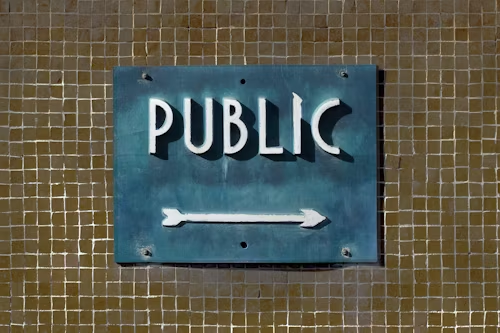Fame Without Privacy: The Dark Trade-Off of Being an African Celebrity
In Africa’s entertainment scene, fame is both a dream and a trap. The rise of social media has transformed celebrities into brands, but at a heavy cost: privacy. In a world where everyone carries a camera and a platform, stars can no longer choose when to be seen or heard. Every outfit, mistake, or offhand comment is a potential headline. The spotlight, once desired, has become a surveillance beam.
For many Nigerian and African entertainers, fame no longer stops when the cameras do. Platforms like Instagram, X (formerly Twitter), and TikTok have blurred the line between performance and personal life. Celebrities are expected to share every milestone, from their morning routine to their heartbreaks, feeding an endless audience’s appetite. In this economy of attention, transparency is currency. Yet, what happens when transparency becomes exposure and exposure becomes exploitation?
The Price of Constant Visibility
The African celebrity’s challenge today isn’t about staying relevant; it’s about surviving relevance. Public fascination often mutates into intrusion, as fans feel entitled to every detail of a celebrity’s life. When Tiwa Savage’s private video was leaked in 2021, it became a case study in digital cruelty, showing how quickly sympathy turns to spectacle. The scandal dominated global headlines, revealing how online voyeurism has become part of modern fame.
In an interview with BBC News, Tiwa said she refused to be shamed into silence but the ordeal exposed the brutal truth of celebrity culture in Africa: fame can magnify vulnerability. Similarly, Ghanaian actress Yvonne Nelson’s autobiography stirred massive controversy in 2023, not for its literary value, but for its confessional tone, fans and tabloids alike dissected her past relationships like court evidence. Privacy, in these cases, isn’t lost by accident. It’s stripped away by a public that demands access.

Social Media: The New Stage and the New Cage
While traditional paparazzi once chased stars down the street, now celebrities carry their own spotlight. Every post becomes part of a delicate balance between connection and overexposure. Nigerian influencer Papaya Ex, for example, built her brand on luxury lifestyle videos but also faced backlash and online trolling over perceived inauthenticity. The same platforms that elevate fame are the ones that amplify humiliation.
A 2024 report by the Reuters Institute revealed that online harassment against African celebrities especially women is rising sharply, often involving gendered insults and fabricated scandals. This weaponized attention pushes many stars into silence or self-censorship, proving that the price of visibility is often emotional exhaustion.
When the Public Becomes the Press

In the digital age, everyone with a smartphone is a potential journalist. False stories spread faster than fact-checked reports, leaving reputations hanging by a hashtag. Nigerian actor Alexx Ekubo once spoke about the difficulty of “living for headlines” explaining that gossip blogs have become more powerful than traditional media in shaping public perception.
Online platforms like Linda Ikeji Blog and Instablog9ja have redefined African entertainment journalism, blurring the ethical lines between news and noise. The same ecosystem that builds celebrities can also destroy them overnight. Fame in Africa, unlike in Hollywood, rarely comes with the protection of PR teams or mental health buffers.
Media Ethics and the Profit of Scandal
Part of the problem lies in how the media monetizes gossip. Many African entertainment sites rely heavily on clicks and viral stories, prioritizing sensation over truth. Journalists often frame speculation as fact, and the line between entertainment reporting and digital defamation becomes dangerously thin.
This lack of accountability means that once a scandal breaks, it spreads uncontrollably. For celebrities, clearing their names becomes nearly impossible in a system where virality is valued more than veracity. The entertainment economy has turned privacy breaches into profitable headlines a silent trade-off between someone’s dignity and another’s traffic spike.
The Mental Health Toll
Behind every smiling selfie is often an untold story of pressure, burnout, or identity crisis. Constant scrutiny leaves little room for self-reflection. Studies from the African Journal of Psychology highlight how public figures face higher risks of anxiety and depression due to performance fatigue and online harassment. Yet, mental health remains a taboo topic in many African societies, making it harder for celebrities to seek help without being branded as weak.
When South African rapper AKA died in 2023, his public battle with emotional struggles reignited conversations about celebrity mental health. Fans mourned the artist, but few reflected on the societal culture that celebrates fame yet neglects the human behind it.
The Illusion of Choice
In truth, fame offers little freedom. The modern celebrity’s life is choreographed by public expectations what to wear, what to post, what to say, what to believe. One wrong opinion can lead to cancellation, while one unfiltered moment can become viral scandal fuel. Fame gives access but takes away control.
As Nigerian actress Tonto Dikeh once remarked in an interview with Channels TV, “Fame doesn’t come with instructions. You wake up and realize your life belongs to people you’ve never met.” That sentiment captures the heart of Africa’s entertainment paradox fame without privacy is power without peace.
Branding and the Burden of Authenticity
Ironically, the same fame that takes away privacy demands authenticity. Brands expect celebrities to “be real,” yet punish them for imperfection. A single misstep can lead to lost sponsorships or moral backlash. When South African star Sho Madjozi briefly disappeared from social media, fans speculated endlessly about her career, ignoring her need for space. This constant pressure to remain visible highlights how authenticity has been rebranded into performance.
According to Forbes Africa, many African entertainers now hire digital strategists to control their narratives, a growing industry that manages perception as carefully as talent. Yet, no strategy can fully shield them from public judgment. The modern brand demands exposure, even when it erodes peace.
Perhaps the most alarming shift isn’t among celebrities but among audiences. Many fans now view access as a right, not a privilege. They expect instant replies, explanations, and emotional transparency, even in moments of grief. When Nigerian singer Mohbad passed in 2023, fans flooded social media with accusations, conspiracies, and leaked footage showing how mourning itself can turn into content.
This public entitlement, as cultural critic Chika Oduah noted in Al Jazeera, reflects a deep confusion between fandom and ownership. The public loves its stars, but also consumes them. In the end, what dies first isn’t privacy, it’s empathy.
Conclusion
A cultural shift is emerging. Some African stars are reclaiming their narratives through controlled transparency. Musicians like Tems and Asake keep their personal lives off social media, choosing mystique over exposure. Others, like Burna Boy, weaponize authenticity sharing only what strengthens their brand identity. This selective openness could define the next phase of African stardom: a fame model where boundaries are strategic, not accidental.
But the public must evolve too. The appetite for constant access must be balanced with empathy. African entertainment doesn’t need more scandals; it needs sustainability where stars can thrive without surrendering their humanity. Because, at its core, fame without privacy isn’t success. It’s sacrifice.
You may also like...
When Sacred Calendars Align: What a Rare Religious Overlap Can Teach Us

As Lent, Ramadan, and the Lunar calendar converge in February 2026, this short piece explores religious tolerance, commu...
Arsenal Under Fire: Arteta Defiantly Rejects 'Bottlers' Label Amid Title Race Nerves!

Mikel Arteta vehemently denies accusations of Arsenal being "bottlers" following a stumble against Wolves, which handed ...
Sensational Transfer Buzz: Casemiro Linked with Messi or Ronaldo Reunion Post-Man Utd Exit!

The latest transfer window sees major shifts as Manchester United's Casemiro draws interest from Inter Miami and Al Nass...
WBD Deal Heats Up: Netflix Co-CEO Fights for Takeover Amid DOJ Approval Claims!

Netflix co-CEO Ted Sarandos is vigorously advocating for the company's $83 billion acquisition of Warner Bros. Discovery...
KPop Demon Hunters' Stars and Songwriters Celebrate Lunar New Year Success!

Brooks Brothers and Gold House celebrated Lunar New Year with a celebrity-filled dinner in Beverly Hills, featuring rema...
Life-Saving Breakthrough: New US-Backed HIV Injection to Reach Thousands in Zimbabwe

The United States is backing a new twice-yearly HIV prevention injection, lenacapavir (LEN), for 271,000 people in Zimba...
OpenAI's Moral Crossroads: Nearly Tipped Off Police About School Shooter Threat Months Ago
ChatGPT-maker OpenAI disclosed it had identified Jesse Van Rootselaar's account for violent activities last year, prior ...
MTN Nigeria's Market Soars: Stock Hits Record High Post $6.2B Deal

MTN Nigeria's shares surged to a record high following MTN Group's $6.2 billion acquisition of IHS Towers. This strategi...





